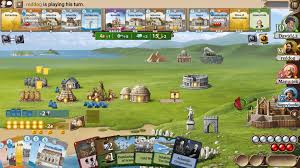The first time many Filipinos encounter bingo isn’t online but in the middle of a community gathering. Perhaps it’s during a town fiesta, or maybe a church fundraiser where cards are spread out on long tables and the air is filled with laughter. Prizes might range from groceries to small household items, but the real reward is the sense of community. That image has endured for decades, and it now finds its way into the digital age.
Today, games like bingo are no longer bound by physical walls. They’ve moved into an environment defined by screens, apps, and live-streaming platforms. What hasn’t changed, however, is the cultural meaning. Games remain rituals of connection, entertainment, and shared anticipation.
The Evolution of Entertainment Spaces
Entertainment has always followed technology. From radio to cinema to streaming services, each innovation reshaped how people engaged with stories and games. In the Philippines, the move to digital platforms marks another milestone in this journey. Online gaming hubs replicate the atmosphere of the community hall, but with new layers of convenience and interactivity.
Platforms such as BingoPlus illustrate this shift perfectly. They preserve the suspense of traditional bingo while adapting it for a mobile-first generation. The social aspects—once defined by physical closeness—are recreated through chat, live draws, and collective celebration online.
Gambling and the Law: A Parallel History
The history of games is also the history of regulation. Ancient Rome banned certain forms of dice, fearing social disorder, even while soldiers secretly played them. In medieval Europe, rulers imposed strict laws on cards and lotteries, but also used them to generate revenue.
The Philippines follows this same narrative. With the Philippine Amusement and Gaming Corporation (PAGCOR) at the helm, gambling activities are monitored and licensed to ensure fairness and responsibility. The 2022 decision to grant online bingo licenses marked a turning point: recognition that online entertainment was not a passing trend, but a reality worth regulating.
The story shows how law has always walked alongside play, adapting to protect both individuals and traditions.
The Psychology of Play
Science helps explain why these games endure across centuries. Dopamine, the neurotransmitter linked to reward, plays a central role. Each moment of uncertainty—the next ball drawn, the next number called—activates this system. The anticipation is as powerful as the outcome, keeping players engaged.
Yet it’s not just biology at work. Games fulfill social needs too. They provide spaces for people to interact, celebrate, and share emotional highs and lows. Online environments continue this function, making it possible for players to connect even across oceans. For overseas Filipinos, digital bingo sessions often feel like homecoming moments, bridging distance through familiar rituals.
Rewards as Part of the Experience
One of the most significant shifts in online entertainment is how platforms recognize the importance of structured rewards. Beyond the thrill of winning a round, players are motivated by acknowledgment of their participation and progress. Systems like BingoPlus APP bring this to life, turning small achievements into meaningful milestones.
This mirrors something ancient: in local communities, even those who didn’t win often shared in the joy of the event. Applause, camaraderie, and recognition were rewards in themselves. Online rewards formalize this process, ensuring that engagement is continuously valued.
Culture as Continuity
What makes games fascinating is their resilience. They don’t vanish when society changes; they adapt. Bingo’s journey from 16th-century Italy to Philippine fiestas to today’s online platforms proves this point. While the tools evolve, the essence—suspense, fun, and togetherness—remains the same.
This continuity explains why games are more than diversions. They are living cultural artifacts, evolving but always familiar. They carry the DNA of communities, traditions, and the timeless desire for play.
Looking Ahead
The future promises even more immersive ways to play. Virtual reality bingo halls, AI-driven personalization, and augmented reality features may soon become standard. But history shows that while the format may change, the reasons people play remain constant: connection, anticipation, and cultural belonging.
From the beans placed on paper cards in a neighborhood hall to digital markers on a mobile screen, the thread is unbroken. Games are part of the human story, a story that continues to unfold in new and exciting ways.
For more reflections on how online entertainment connects tradition, science, and culture, Click here to explore the evolving world of play.


